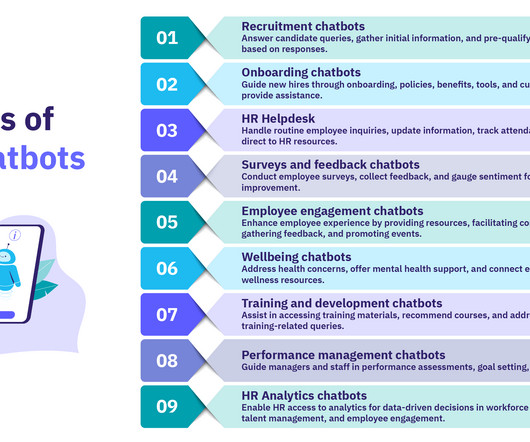The Three Eras of Knowledge Management - Summary
Conversation Matters
AUGUST 1, 2010
I have posted lengthy descriptions of each of the three eras of knowledge management and here I have made a brief summary of all three. Since the term “knowledge management” came into popular usage, there have been three significant changes in how organizations have thought about their knowledge.



















Let's personalize your content